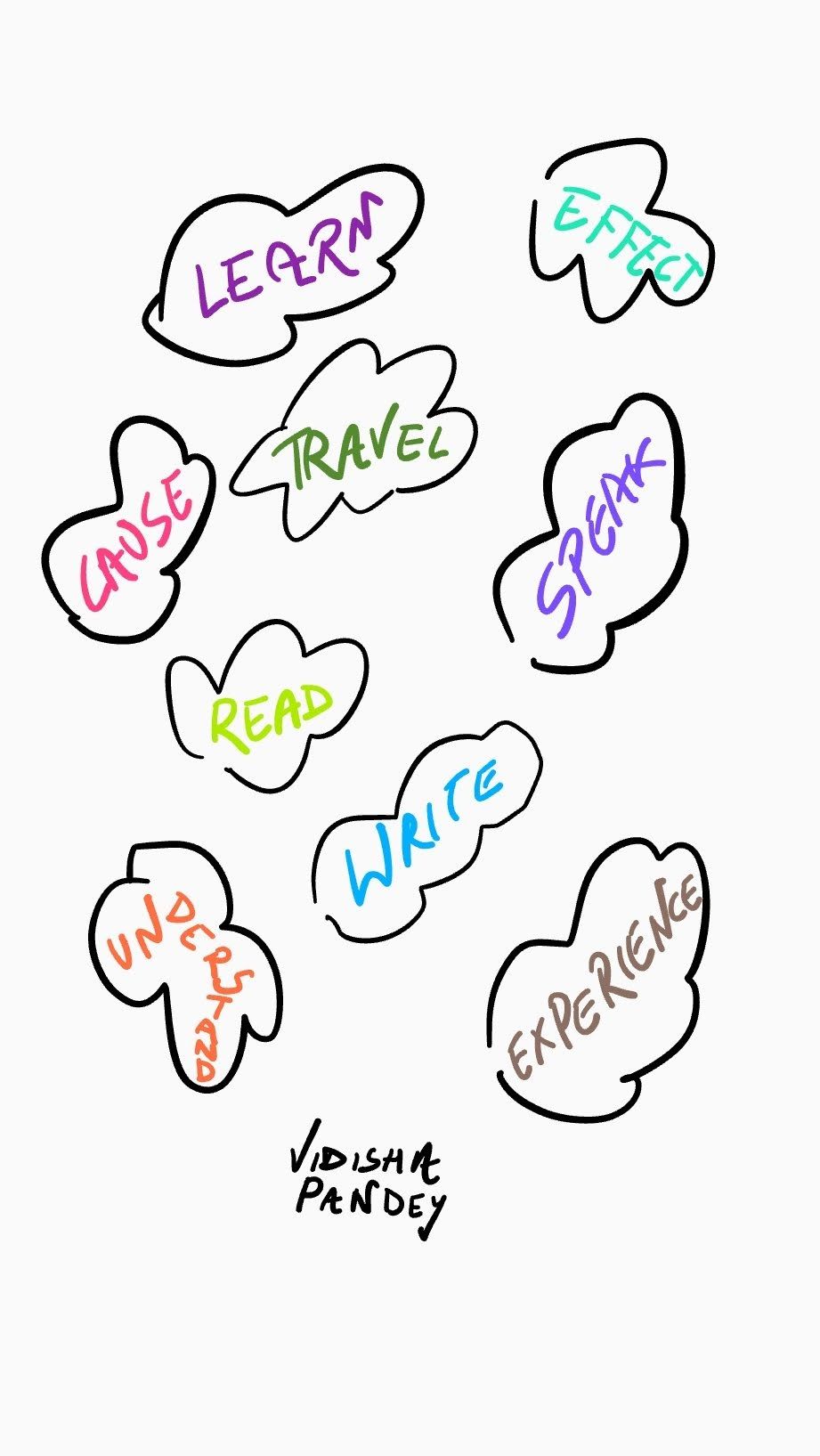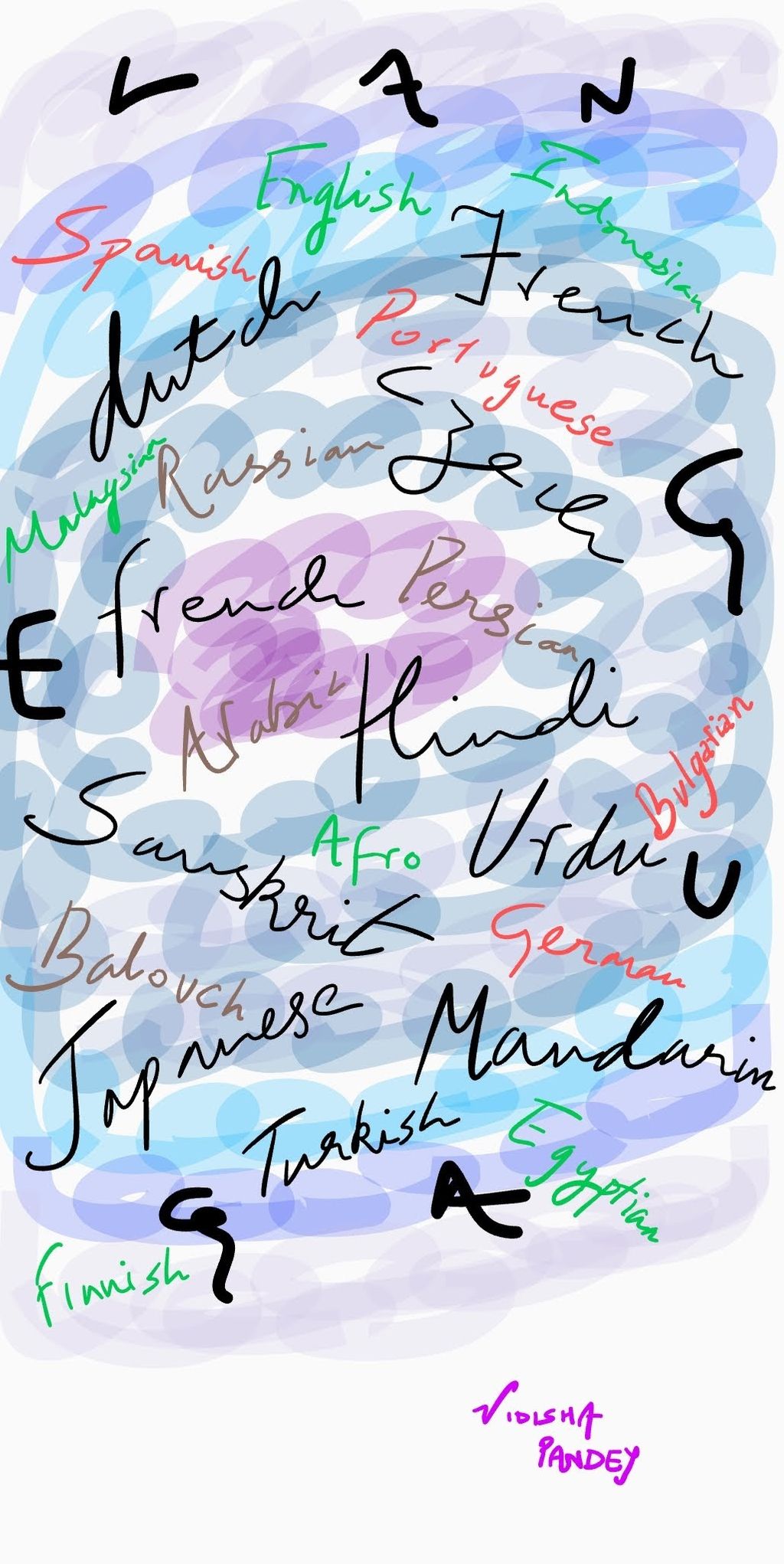8 Steps Of Learning A Language
Aug 08, 2019 • 147 views
Learning a language can be a very refreshing experience if you have the right approach to it. I have learnt three languages excluding my mother tongue of course and taking all my learning into consideration,one thing I can tell you is that there is no mandation to have a teacher or to not have a teacher. There are no strict yes's or strict no's to it.
I have learnt languages within a span as small as 2 months and also within a span as long as a year. As yet I have learnt three, and working on another three!
But having acquired that experience, I can really say that you 'can' learn it in weeks! You have to plan a proper scheme and after that, implementation is a cakewalk.

Following are certain points that I'd like to highlight with regard to the same. Make them a part of your thought process and you're good to go!
1. Choose a language-
Preferably, choose a language to which you have easy access such as a television channel broadcasting content in that language. This will not only ease up the process of understanding the language and cultures associated with it but also make it easier to absorb the pronunciations and details of the language.
2. Make a diary for it-
Even if you want to learn a language for speaking purpose, you have to make notes. Oral learning methods are usually preferred when you have to remember something for a short time. But since you're investing your time and effort in learning something new, I don't think you'd want to get it off your mind in the long term. Notes may not necessarily make you feel very confident about what you just learned on day 1 but they set up a discipline.
Push yourself for two days and on the third day you will want to continue it yourself just how a chain reaction happens.
Make sure the notebook or register is all about the language and it doesn't have anything else.
Write every little thing that you learn about the language. Open it everyday and revise whatever little you have collected and written. It will increase your interest and make you hungrier to learn more.
When you learn a new consonant or diacritic,do research about the different forms in which it is used and write next to them a few examples explaining their usage so when you review it the next time, it doesn't take you a lot of time to recollect.
3. Learn the alphabet and numbers-
You don't necessarily need to spend money on a teacher to learn something as basic as this.
Open your web browser and type, say, "French/any language-Student manual"in your search bar and you're going to find a number of pdf's which provide basic knowledge about the language.
The main problem that people have is that they highly doubt human ability. They think that a teacher will be able to build concepts and give an in-depth knowledge which the learner's won't acquire from self study. But that's not completely true. A teacher can't share with you his/her whole learning in a few sessions and even if he/she does, it will not be as quick as 'you' can do it all by yourself.

4. Trust the process
Know that things don't happen overnight. Ifyou aren't able to learn the consonants and numbers in a day, don't drop the idea of learning. It once took me 5 days to learn the consonants and another 5-6 to learn their usage. So it's very normal. It's a new language that you are learning and it will take sometime to get embedded in your system.
But if you're in touch with the language on a daily basis, it will become a part of your subconscious very soon. Try doing it continuously for at least half an hour everyday for 10 days. After doing this, you're in a good position to make a judgement for yourself.
5. Try writing Words-
Once you know the consonants and diacritics and other punctuations, try forming words on your own.
Obviously there are a variety of formations in every language and since it's a language it will have to be a little complex, after all it's a medium of communication!
But when you start to write it yourself rather than just trying to learn reading it, you'll become more and more accurate with every passing session. Learning a language requires mental processes and patterns that are very similar to what is required in mathematics!
The best feeling comes from trying something and ending up being unexpectedly correct!
"Trust your intuition" is something that is adviced for every walk of life. Here it's just a language. It really isn't a bad idea to keep trying. You'll feel really triumphant with every little learning!
6. Travel
It will make you more passionate and inquisitive. Our brain understands experiences and visuals faster than understanding books and notebooks. When you travel, it becomes very easy for you to form associations to be able to remember smallest of details. You don't necessarily have to choose a travel destination where only the language you are learning is used.
I'm referring to travelling as an activity and not as something to merely satisfy an agenda.
Visit museums and libraries of different cities, states and countries. The creative and bookish atmosphere will inspire you to learn and gain more knowledge.
What's better than to be equipped with so many languages and having the freedom to dive into any book, land into any country and speak any language that seems suitable to the context.
7. Read and watch content in the language that you're learning-
There's nothing more to be said about this, knowing a language is not just about being able to interpret and speak or write but to also be very comfortable with it. You should be fluent with it so much so that you never have to give second thoughts before using the language. This fluency can only come from exploration and exposure.
8. Building vocabulary-
Buying a two- in-one dictionary is one of the most effective ways to familiarize yourself with the language. It should have the words and definitions in both new language to native language and native language to new language formats.
Vocabulary building is an ongoing process and that is something even a native speaker is working on. So be glad that you, despite of being a beginner, are quite on the same page as that of a native.
You can use this strategy to learn languages as seemingly complex as Mandarin or Japanese to languages as common as English.
-Vidisha Pandey
